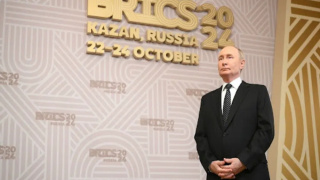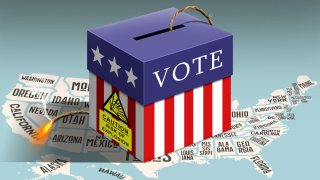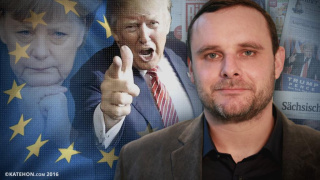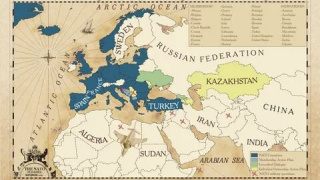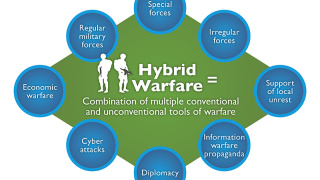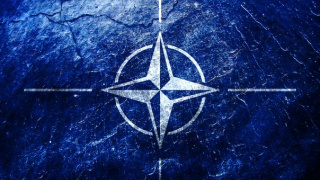The President of Macedonia announced boycott of the NATO referendum
Macedonian President Gheorghe Ivanov, who in words supports his country's accession to the European Union and NATO, called on the Macedonians not to participate in the referendum on renaming their country, which is being started just for this purpose. And he did it while in the US after the last week's talks in Skopje with the "Mad Dog" James Mattis, the head of the Pentagon who for the first time in 14 years visited Macedonia in order to convince her authorities and the people not to resist renaming their country from Macedonia to northern Macedonia . Since without this, neighboring Greece refuses to give consent to the accession of Skopje to NATO and the EU.
Announcing his refusal to participate in the referendum scheduled for September 30, Ivanov also urged his fellow citizens to do likewise. Whatever the Macedonian president is guided in this case, the only real consequence of the failure of the referendum will be the cross, which the Macedonians will thus put indefinitely on the prospects of their legitimate membership in both structures. What will be called their country, in addition to the Macedonians and Greeks, in fact, no one cares. The referendum is important for the rest of the world only because the fate of the EU and NATO in the Western Balkans is at stake.
Ivanov v. United States
Speaking to the Macedonian diaspora in Detroit (USA), Ivanov said: "As for me, I already voted 27 years ago - September 8, 1991 (at the referendum on the country's independence - ed.). Do not give up on my decision. Therefore, on September 30, I will not go to vote. " He stressed that he still considers the agreement with Greece to rename his country "harmful and defeatist", despite the fact that Athens has blocked the accession of NATO and the EU to the name of Macedonia for a quarter of a century, fearing completely unrealistic claims of Skopje on the Greek part of historical Macedonia.
According to Ivanov, a prominent lawyer, "this agreement not only changes the name of the existing state, but creates a new semi-sovereign state with a new name, with a new internal legal and international legal identity." Having made it clear that the very appearance of this problem is the result of corruption and financial and political dependence on the external forces of the ruling parties in Macedonia, the president warned: even if the name of the country and its constitution change, "membership in NATO and the EU will not come automatically."
This was done despite the fact that in July all 29 member countries of the North Atlantic Alliance (in 1990 there were only 16) invited Macedonia to join NATO. Alliance Secretary-General Jens Stoltenberg, according to him, is ready to immediately satisfy this invitation, "as soon as Macedonia makes necessary changes to the constitution", becoming the Republic of Northern Macedonia.
Challenge for the EU
Thus, the President of Macedonia announced boycott to the referendum on the renaming of the country, fraught with important geopolitical changes in the Balkans. Earlier in September, Ivanov warned the head of EU foreign policy, Federico Mogerini, that he rejected the treaty with Greece, which opened Macedonia to the EU and NATO.
Meanwhile, Washington has repeatedly stated that settling a long-standing dispute over the name of Macedonia is a merit of American diplomacy, which seeks to nullify Russia's influence in the Balkans. This is in solidarity with Washington in the EU, where they are also unhappy with the principled position of the Macedonian president, because they consider the dispute over the name between Skopje and Athens as one of the most serious obstacles to the absorption of all the Western Balkans. In Brussels, they hope to cross out the negative consequences of the breccist by "staking out" new territories in Europe to limit the influence of Russia, China and Turkey on them.
Thus, Ivanov challenged not only Washington, but also Brussels, where they loudly applauded the "settlement" of the Greco-Macedonian dispute over the name.
What will happen now?
Polls show that the Macedonians are likely to support the referendum agreement with Greece. Not because of the love of NATO, of course. But because they believe that in the EU they will live richer than now. Ordinary people are far from constitutional subtleties and understand that neither now, nor in the future their small country simply can not be really independent. In addition, the name Northern Macedonia is not offensive. There are, after all, in the world Northern Ireland or North Korea. However, due to the fact that the Balkans, like the Caucasus, are a delicate matter, many Macedonians still oppose the agreement with the Greeks, who first made Skopje change its flag, and now - the name of their country.
Nevertheless, it is expected that with a slight advantage the referendum participants will still support their current government in a dispute with the president.
This is where democracy ends. In connection with the presidential boycott of the referendum and following his example, many Macedonians simply will not take part in it. This means that turnout is unlikely to exceed 50%, in connection with which the referendum by law should be declared invalid.
As we see, on the part of Ivanov, the call for a boycott is the surest tactic to disrupt this event. If it turns out that more than half of Macedonians will somehow take part in the referendum, and most of them will vote, as expected, for an agreement with Greece and, accordingly, joining NATO and the EU, the parliament will have to approve the constitutional amendment of the country with a constitutional majority , which the ruling parties do not have. In addition, the president-lawyer himself will have to approve these changes, which he does not intend to do, and now he will definitely not give in. Thus, to join Macedonia to NATO and the EU does not work without the grossest violations of the law.
The Macedonian government is ready for this, for him the main thing is that it wants it, that the EU and NATO wish it. Ivanov is threatened with "criminal liability" and impeachment. The authorities intend to refer to the will of the Macedonian minority and are confident that the West will cover them, because democracy is good only when it is "correct" and does not violate the interests of Washington and Brussels.
Greece will say its word
It will be very difficult to break or somehow bypass the will of the Macedonian president and the parliamentary opposition. But even more difficult, almost impossible, will be to achieve a final approval of the deal by Greece after the Macedonians, we assume, will still make the appropriate changes to their constitution. The agreement between Skopje and Athens on Macedonian change of name is categorically rejected as wrecking by the overwhelming majority of Greeks and by the majority of Greek political parties, primarily the leading force of the opposition - the New Democracy (ND). Even the younger partner of leftist SYRIZA on the ruling coalition, the right-wing Independent Greeks party, promises to torpedo him, foiling his ratification in the parliament.

